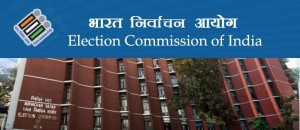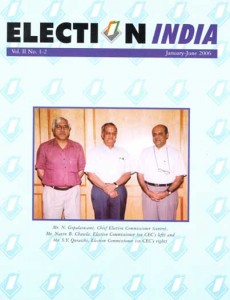The election commission of India is an autonomous constitutional body established in the year 1950. The commission is entrusted with the task of conducting free and fair elections in world’s biggest democratic country; India. In a way, it is an embodiment of the principles and values that are enshrined in the Indian constitution.
What Does Election Commission India Do?
Right from the voters to election authorities, the commission also looks over every aspect of Indian elections. It also drafts Model Code of Conduct for every political party as well as candidate which ensures that no unfair advantage is gained, and everybody contests in a fair manner.
The commission consists of three members only; 2 elections commissioners and 1 chief elections commissioner. Under these three there is another team of competitive authorities who have a responsibility of devising all the laws and systems that will govern the every type of elections that are conducted within India.
The commission has also tied up with governments of all the Indian states as well as union territories for conducting elections. Every time elections are held across the whole country, the election body has approximately 5 million election personnel at its disposal.
It is not that only during elections that the commission works. Even during non election periods, the commission is involved in various activities to improve upon the performance. From tenders to training material to online mapping of polling stations, the election commission certainly knows how to keep a tab on the pulse.
All Rounder
If you think that the only thing the commission does is just issue commands and makes laws think again. The Indian election commission publishes journals, magazines and books from time to time. These publications are not only for the election personnel but also for voters and candidates who are contesting the elections. The content of these publications varies in nature. Some of these are handbooks while some are guides while some are just informative.
In addition to being an election commission, it also acts as judicial authority for matters related to elections. The commission also handles all the disputes and objections related with elections. The committee decisions are binding even for the president of India and governor of states.
Internationally Respected And Admired
The Indian election commission is a member of International Institute for Democracy and Electoral Assistance (IDEA as it is also called). Thanks to its invaluable experience of handling Indian elections for more than half a century, the election commission is offering its expertise and experience to help other nations in election related matters.
Election Commission and Indian Voters
As the autonomous election body of the country, the election commission also ensures that voters and their electoral needs are well taken care of. As a step in this direction, it started Voter Education and Electoral participation to make it easy for voters to exercise their constitutional right.
The commission values the voters and hence has provided them a platform for the voters voice their concerns. The official website of the election commission of India has the provision where Indian voters can put forward their suggestions or complaint. You can check it out here.
In fact taking it even further, the commission also rewards the people who have contributed in the successful conduct of elections. To top it off every year January 25th is celebrated as Voters Day by election commission.
Adapting To Changing Times
By adopting technology the commission has kept up with changing trend to conduct elections. It has computerized most of its processes, gone online to reach out to Indians across the globe.
On its website the voters can also find large range of information about various election officials like Block Level Officer (BLO), Electoral Registration Officer (ERO)


Comment Policy [Please read this before posting your comments]: Only use your real name. Your words are your own, so be nice and helpful if you can. Please, do not share any personal information in your comments. For further details, please read our Comments Policy available over here.